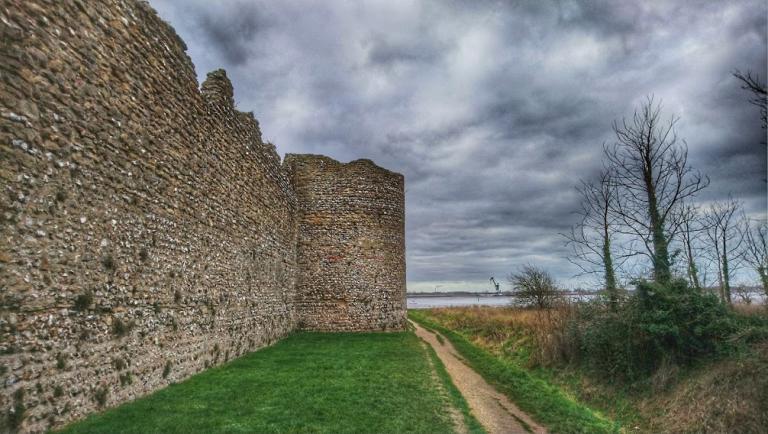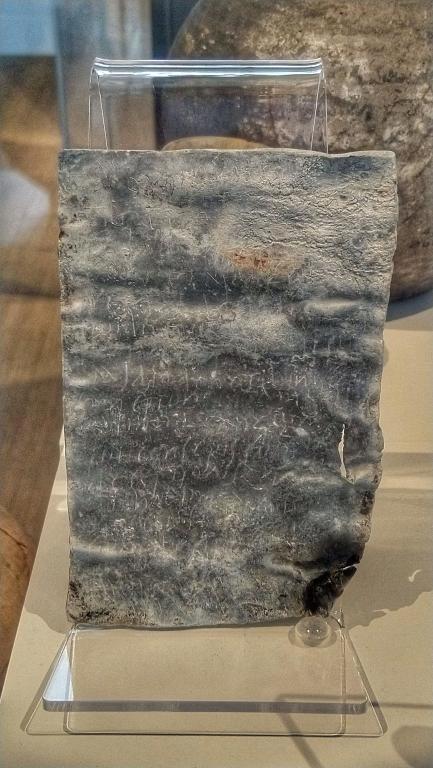Living in Britain, you’re never far from history: it’s literally under our feet. All it takes it a little curiosity and research to find out about who once lived, loved and died in your local area. At school, we were taught general history from the Roman invasion onward but I was never particularly interested in the Roman era. Recently, that’s changed.
I live about seven-miles away from the town of Portchester, known as Portus Adurni to the Romans and an important defence to see off Saxon invaders. Today, the walls, built in the 3rd century, are almost all intact.

I often visit the Roman walls and the old church, built in the 1120s, within them (there’s a labyrinth in the churchyard). There’s a castle too, managed by English Heritage, within the Roman walls which makes an interesting visit if you’re ever down this way.
I’ve known about Portchester ever since I moved down to the south coast but I was not aware, until a couple of weeks ago, that a couple of miles from my home is a Roman curse tablet.
Curse tablets, made from small sheets of lead or pewter, were written petitions to the gods to intervene on the inscriber’s behalf. Once written, they were rolled up and placed somewhere for the gods to see. In Britain, watery places were popular to dump the curses.
Out of the 500 or so Roman curse tablets discovered throughout the lands occupied by the Romans, half have been found in Britain. It seems like cursing has been a favoured pastime of the inhabitants of this land since antiquity! British curses favoured revenge and the recovery of stolen goods whereas continental curses were biased towards sex and gambling.
I’ve seen a curse tablet before at the Roman baths in Bath, near Bristol. The temple there was dedicated to Sulis Minerva so it was the goddess petitioned to seek revenge and retribution. Over a hundred curse tablets, made of pewter or lead, have been recovered at Bath. Almost as many curse tablets have been uncovered at a site of a Roman temple, believed to be dedicated to Mercury, at Uley in Gloucestershire.
My local curse tablet was found within the mud flats of the river Hamble, Hampshire and is now in Westbury Manor museum, Fareham.

The inscription, written on lead and in Latin, reads:
Lord Neptune, I give you the man who has stolen the solidus (gold coin) and six argentioli (silver coins) of Muconius. So I give the names who took them away, whether male or female, boy or girl. So give you Niskus, and to Neptune, the life, health, blood, of him who has been privy to that taking away. The mind which stole this and has been privy to it, may you take it away. The thief that stole this, may you consume his blood and take it away, Lord Neptune.
I wonder if Muconius ever did get his money back.

















